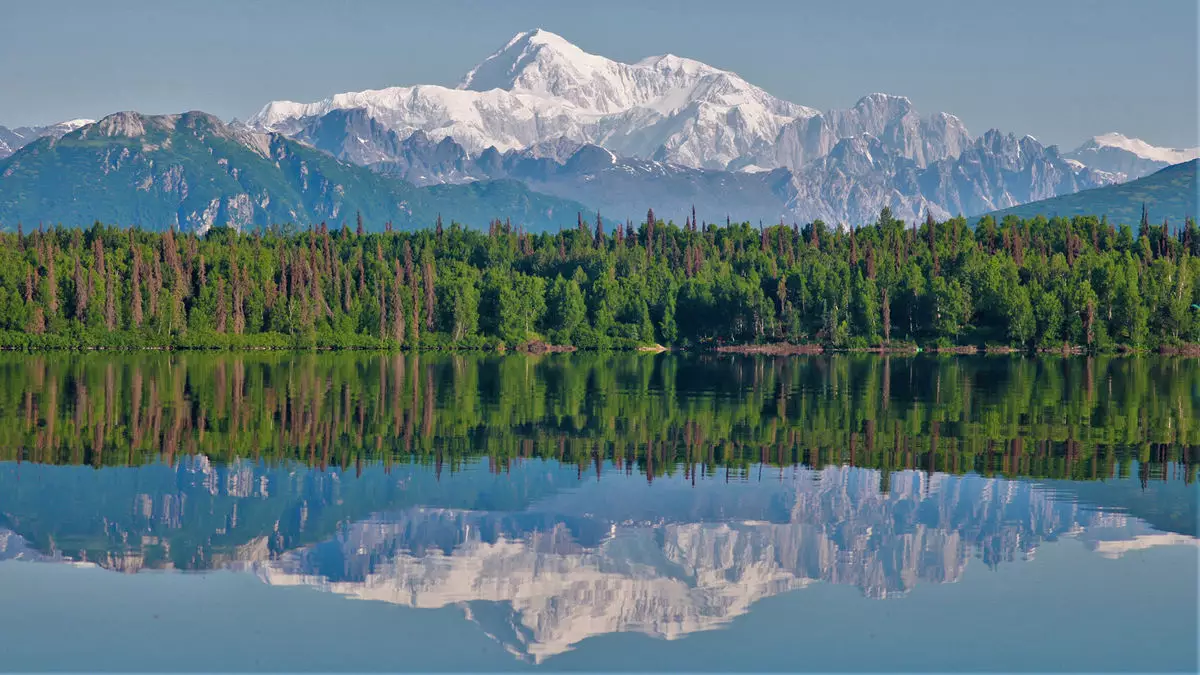The debate surrounding the tallest mountain in North America presents a vivid illustration of the challenges that arise when cultures collide. The mountain, long known as Mount McKinley, was returned to its original Indigenous name, Denali, in 2015 under President Obama, a decision that symbolized a deeper recognition and respect for the Native American heritage of the region. However, this change was met with renewed contention following former President Trump’s Inauguration Day order to revert the mountain’s designation back to Mount McKinley. This situation has incited reactions from various groups, particularly among Indigenous communities and local tourism operators who see Denali not simply as a geographical marker but as a symbol of their history, identity, and cultural significance.
The Significance of ‘Denali’
The term “Denali,” derived from the Koyukon Athabascan language, translates to “the high one.” This name does more than identify the mountain; it encompasses a connection to the land and the Indigenous peoples who have lived in Alaska for thousands of years. Jordan Sanford, president of Doyon Tourism, emphasizes that the name Denali embodies “the reverence and respect Indigenous people have for the land and the spiritual significance it holds.” Through activities like wilderness tours and experiences at the Kantishna Roadhouse, there is a concerted effort to uphold this Indigenous identity, which is showcased in the language and stories that celebrate the mountain’s heritage.
In a demonstration of solidarity, various entities, including tourism businesses, have taken a stand to persist in referring to the mountain as Denali. For instance, Camp Denali, a wilderness lodge, has echoed the sentiment that “Denali will always be Denali to Alaskans,” a statement that has resonated deeply online with thousands of likes and shares. This support for the name Denali highlights a broader community consensus among Alaskan residents regarding the need to honor Indigenous traditions and acknowledge their historical significance.
The tussle over the mountain’s name has historical roots that stretch long before the modern political landscape. President McKinley was honored by having the mountain named after him in 1917, primarily as a tribute from a state leader several states away—reflecting a time when little was understood about Indigenous cultures. The Obama administration’s decision to restore the name Denali in 2015 was not merely an alteration on paper; it constituted a reclamation of identity and history. In fact, Alaska legislators had previously sought to restore the name Denali as early as 1975, indicating a long-standing desire to correct historical oversights.
Furthermore, the Alaska House of Representatives has also resolved to request that the Trump administration maintain the name Denali, clearly illustrating a collective recognition of the importance of this name on both cultural and legislative levels. Jillian Simpson, CEO of the Alaska Travel Industry Association, noted that irrespective of federal decisions, the local sentiment will likely remain in favor of Denali, which underscores the resilient nature of Indigenous identity in the face of external changes.
The ongoing debate surrounding the mountain’s name invites more profound explorations of how names—and the power dynamics they embody—shape our understanding of history and identity. As Sanford aptly notes, “Denali isn’t just about geography. It’s about respect, identity, history, and the way we honor the cultures that have existed long before any outside influence.”
President Trump’s emphasis in his executive order on honoring McKinley for his contributions to American enterprise and progress starkly contrasts with the arguments for preserving Denali’s name, which foregrounds a respect for Indigenous populations and their narratives. This juxtaposition raises questions about whose history is valued and how that history is taught.
The ongoing dispute over the naming of Denali encapsulates a larger struggle for recognition and respect that continues to garner attention and spark conversations about identity, history, and the power dynamics inherent in naming places. As discussions unfold, they serve as a reminder of the need to engage with and address the historical injustices faced by Indigenous communities, illuminating a path toward healing and mutual respect.


Leave a Reply